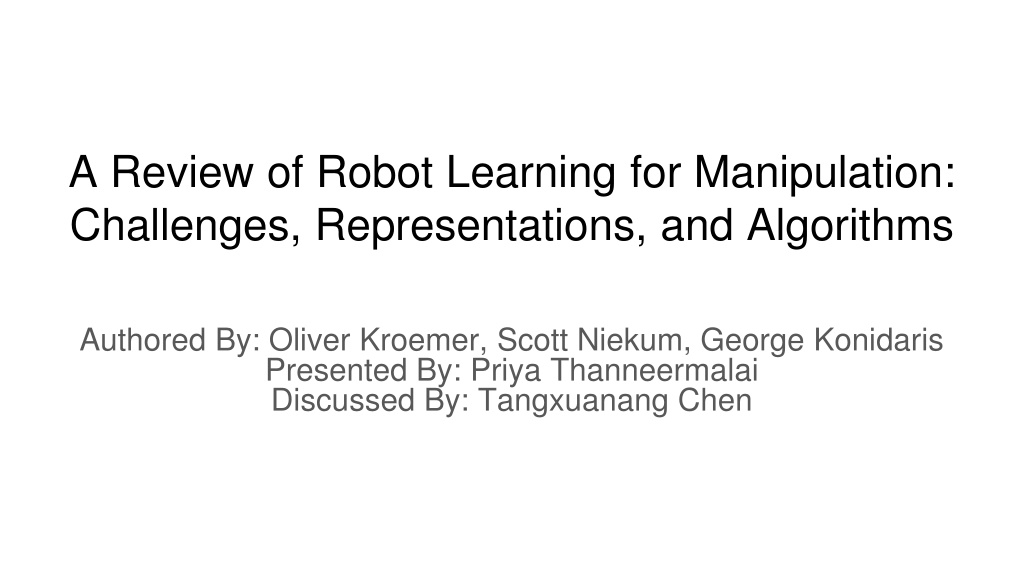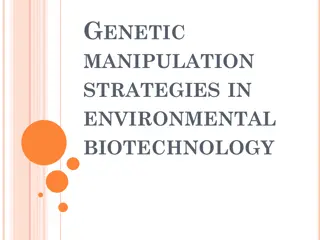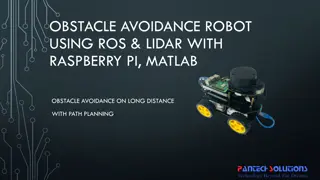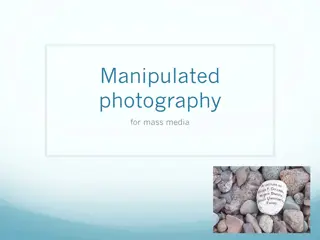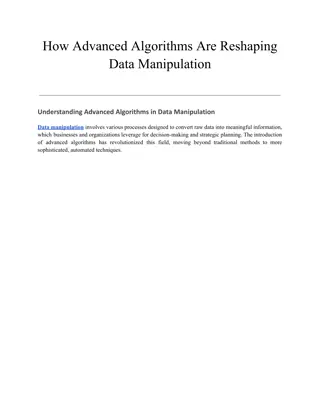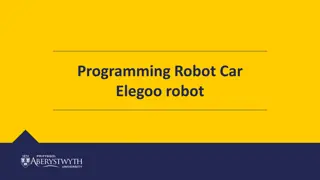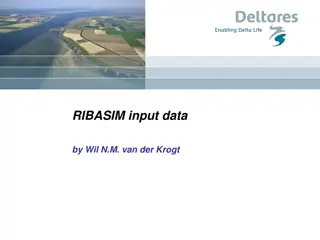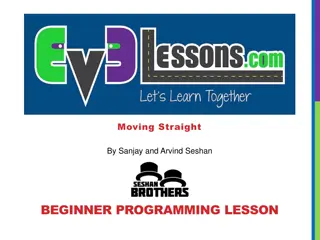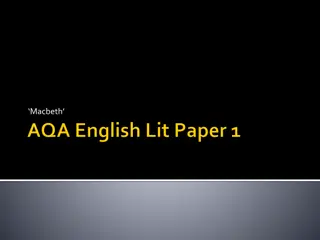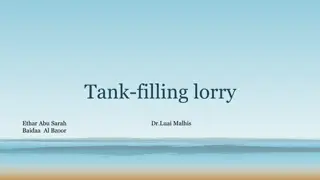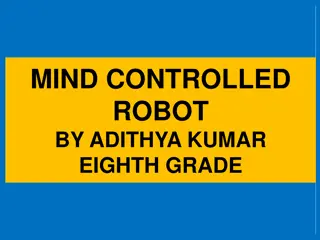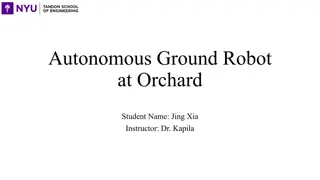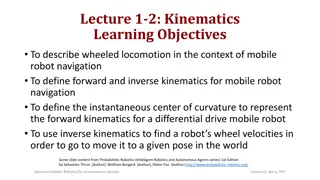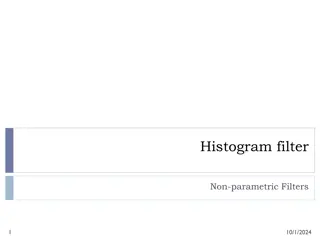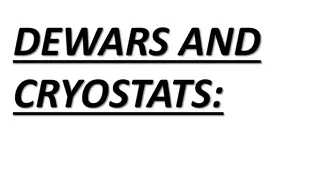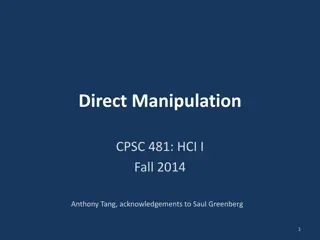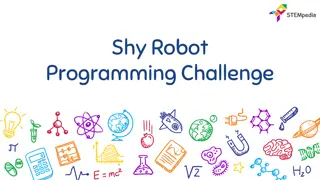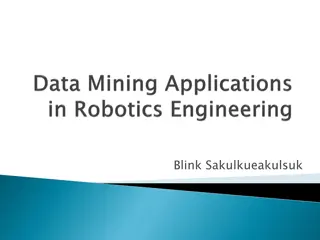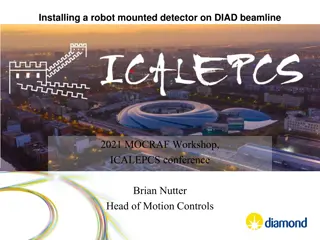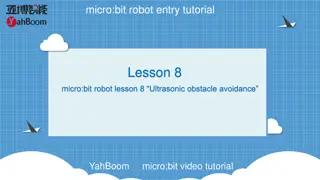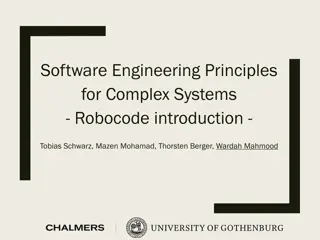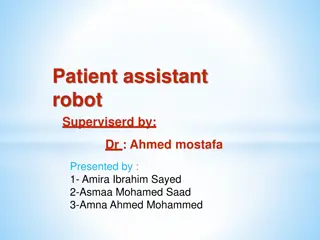Robot Learning for Manipulation: Challenges and Opportunities
A review of robot learning for manipulation presents key motivations, concepts, and formalization of learning tasks. It covers various aspects such as manipulations as physical systems, task decompositions, object-centric generalization, and learning object and environment representations.
- Robot Learning
- Manipulation Challenges
- Learning Tasks
- Object Representations
- Hierarchical Structures
Download Presentation

Please find below an Image/Link to download the presentation.
The content on the website is provided AS IS for your information and personal use only. It may not be sold, licensed, or shared on other websites without obtaining consent from the author. Download presentation by click this link. If you encounter any issues during the download, it is possible that the publisher has removed the file from their server.
E N D
Presentation Transcript
A Review of Robot Learning for Manipulation: Challenges, Representations, and Algorithms Authored By: Oliver Kroemer, Scott Niekum, George Konidaris Presented By: Priya Thanneermalai Discussed By: Tangxuanang Chen
Motivation - Learning is key - Varied applications - Formalize robot manipulation learning problem into a single framework - Describe a subset of the current research in this area - Highlight remaining research opportunities and challenges
Concepts in Learning for Manipulation - Manipulations as physical systems - Underactuation, Nonholonomic Constraints, and Modes in Manipulations - Interactive Perception and Verification - Hierarchical Task Decompositions and Skill Reusability - Object-Centric Generalization - Discovering Novel Concepts and Structures
Formalizing Manipulation Learning Tasks - Robot learning problems are formulated as MDPs with a tuple definition (S, A, R, T, ) - The goal of learning is to find a control policy, , that maps states to actions so as to maximize the return, or discounted sum of future rewards for that particular problem. A task family is a distribution, P(M), over MDPs, each of which is a task. Action space is same across tasks, but state space, transition and reward functions are different. - -
Overview of Learning Problems for Manipulation - learning to define the state space - learning a transition model of the environment - learning motor skills - learn to characterize that motor skill - learning compositional and hierarchical structure
Learning Object and Environment Representations - Object representations capture how objects vary both within tasks and across tasks of the same family. Must be general - Object variation types: Object pose, shape, material properties, interaction or relative properties - Object Representation Hierarchies: - Point-level Representations - Part-level Representation - Object-level Representations
- Passive (acquire large info from environment quickly with little effort) and Interactive (more time and effort) Perception - Learning About Objects and Their Properties - Discovering Objects - Discovering Degrees of Freedom - Estimating Object Properties - Feature Learning and Selection
Learning Transition Models - Representing and Learning Transition Models: - Continuous models - Discrete models - Hybrid models - Uncertainty in Transition Models: - aleatoric uncertainty - epistemic uncertainty - Self-supervision and Exploration for Learning Transitions - Transferring and Reusing Transition Models
Learning Skill Policies - Types of Action Spaces - The Spectrum of Policy Structure: Nonparametric Policies, Generic Fixed-size Parametric Policies, Restricted Parametric Policies, Goal-based Policies - Reinforcement Learning: Model based or model free, value function methods, policy search methods, on policy or off policy, exploration strategy
- Imitation learning: Behavioral cloning, Reward inference, Learning from Observation, Corrective Interactions - Skill Transfer: Direct Skill Re-Use, Parameterized Skills, Meta learning, Domain Adaptation, Curriculum learning - Safety and performance guarantees: Performance metrics
Characterizing Skills by Preconditions and Effects - Pre- and Postconditions as Propositions and Predicates - Classifier Representation: Grasped(KnifeA, RHand) - Distribution Representation - Modularity and Transfer: Full(mug, water) and Grasped(mug, hand) - Learning Pre- and Postcondition Groundings
- Skill Monitoring and Outcome Detection: Grasped(Book,RHand)=True - Learning Goal and Error Classifiers - Detecting Deviations from Nominal Sensory Values - Verifying Predicates: On(DishC,DishB)=True - Predicates and Skill Synthesis - Representing and Synthesizing Skill Parameters - Preconditions and Affordances
Learning Compositional and Hierarchical Task Structures - The Form of a Motor Skill :
- Segmenting Trajectories into Component Skills - Segmentation Based on Skill Similarity - Segmentation Based on Specific Events - Discovering Skills While Solving Tasks - Learning Decision-Making Abstractions - Learning Abstract Policy Representations - Learning Abstract State Spaces
Challenges - - - - - - - Integrating learning into complete control systems Using learned components as they are being learned Safe learning, and learning with guarantees Exploiting and integrating multiple sensory modalities Better exploration strategies Exploiting common-sense physical knowledge Better algorithms for transfer across different families of tasks
Discussion #1 - @90_f2 and reply Within the skill transfer section, the authors mentioned curriculum learning, where one presents a sequence of tasks of increasing difficulty to the agent, which provides a smoother gradient for learning and can make positive rewards significantly less sparse in an RL setting, instead of attacking the final task directly. Although a bit different, the idea of using smaller tasks to build up reminded me of LLM Chaining where the output of one step becomes the input for the next, and the gains per step can be aggregated. Are there other examples of training from easier to harder (or smaller tasks aggregated to a larger one)? Does it exist in robotics?
Discussion #2 - @90_f4 and @90_f6 There seems comparatively little work that truly sees skills emerge as a means to solve problems and acquire rewards, and far less work that sees skills emerge from curiosity or unguided "play". In the end, the author listed several current challenges and one of them is about common-sense physical knowledge. It seems the current LLM model can demonstrate it very well now. Can it be incorporated into robot manipulation learning and how will it make a change?
